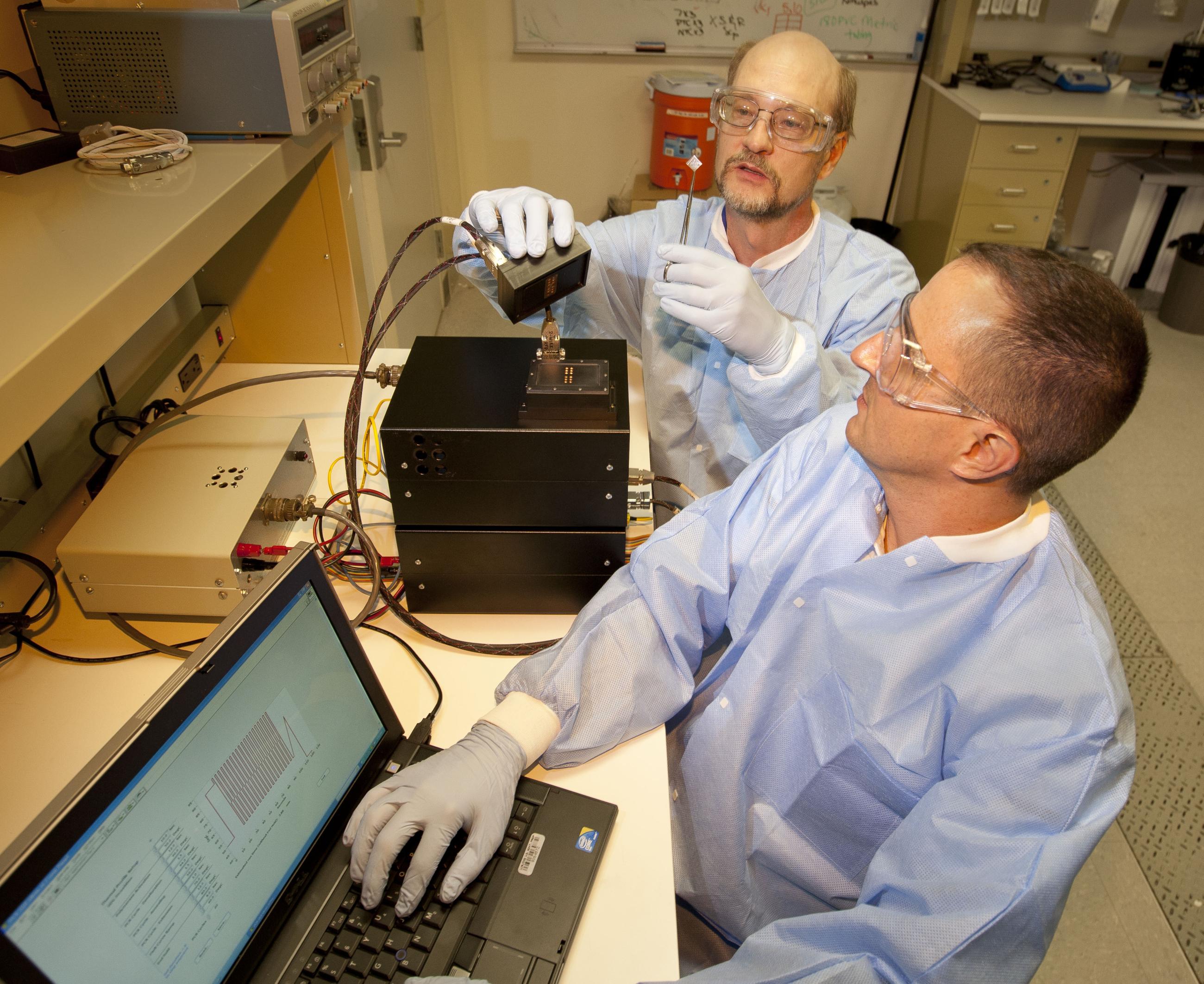LLNL researchers have developed a new method for faster, more accurate, and precise thermal control for DNA amplification. This technology uses sensor-controlled nodes to monitor and cycle materials through a microfluidic heat exchanging system. Thermal energy travels from a power module through thermal electric elements to sample wells. Sensors coupled to each sample well monitor and respond to predetermined temperature thresholds allowing for the simultaneous directional transfer of thermal energy and therefore better thermal cycling controls. When using LLNL’s solid-state distributed node-based rapid thermal cycler, researchers can be assured that sample DNA is being amplified under optimal conditions. The constant communication between sensors and controllers within the system increases the efficiency of this apparatus’ thermoelectric elements resulting in higher quality samples for better data integrity in a shorter amount of time.
US Patent 8,720,209 “Solid state rapid thermocycling” (LLNL internal case # IL-12275).
Contact: vaishnav1@llnl.gov


